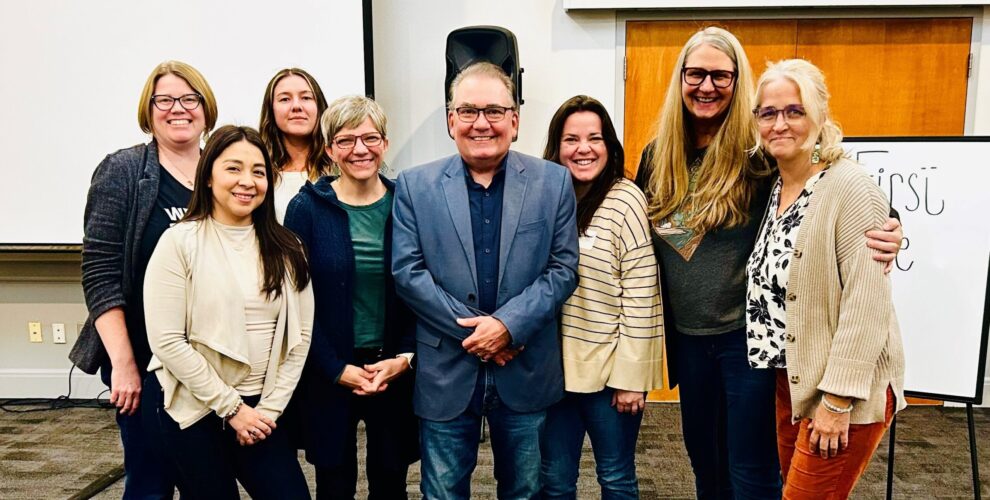Powerful Insights from the Justice-Doing of Kin First Training

First 5 Mendocino hosted a Justice-Doing of Kin First training in Ukiah on December 4-5th at the Ukiah Valley Conference Center. The two-day presentation by Kevin Campbell emphasized several critical lessons for Mendocino County professionals. Here are some of the important takeaways:
1. Historical Context Matters
The presentation began by providing a deeper understanding of the historical context of our social services system, which emerged during World War II as a crisis-driven response. Rather than focusing on sustainable solutions, funds were primarily allocated to maintain a system of services aimed at eliminating poverty through a “war on poverty.” Unfortunately, this approach was not designed to support individuals in the long term; instead, it sought to eradicate poverty itself. Today, families continue to grapple with the repercussions of this system, as these historical programs can perpetuate cycles of poverty, limit access to essential resources, and reinforce negative stereotypes about those who need extra support. As a community of professionals, we need to find new ways of offering support and resources without stigma, so we can empower more families to achieve economic stability and social mobility.
2. The Importance of Family Connections
One of the core principles of Family Finding is the belief that every child has a right to maintain connections with their family, cultures, and community. This approach encourages professionals to actively seek out and engage family members, recognizing their vital role in a child’s life. The training highlights that seeing family members as the valuable resources that they are can significantly enhance a child’s emotional and social well-being.
3. Holistic View of Family
The training promoted a holistic view of family, which includes not just biological relatives but also extended family, friends, and community members. This perspective is crucial for understanding the full context of a child’s life. By seeing the child within their family and community, professionals can better support their needs and foster a sense of belonging.
4. Empowerment Through Family Engagement
Family Finding emphasizes the need for empowering families to take an active role in the care and support of their children. This involves not only identifying family members but also facilitating their involvement in decision-making processes. The training teaches that engaging families in a meaningful way can lead to better outcomes for children, as it fosters a sense of agency and connection. These lessons underscore the transformative potential of Family Finding in the foster care system, advocating for a shift towards more family-centered practices.
In Conclusion
Families, in all the different ways they may look and function, are the foundational unit of love and security in our society and should be seen as the greatest resource for children to grow and achieve their full potential. Kin First and Family Finding practices are essential in how all professionals work with families, as they emphasize the importance of maintaining and strengthening familial connections. By actively engaging family members and utilizing their strengths, we can foster a supportive network that enhances the overall well-being of children and families. This approach not only promotes stability and resilience but also aids in the prevention of family separation, ensuring that children have the opportunity to grow up within a caring and nurturing environment. Ultimately, prioritizing Family Finding practices leads to more effective interventions, better outcomes, and a holistic understanding of the family unit’s dynamics.

